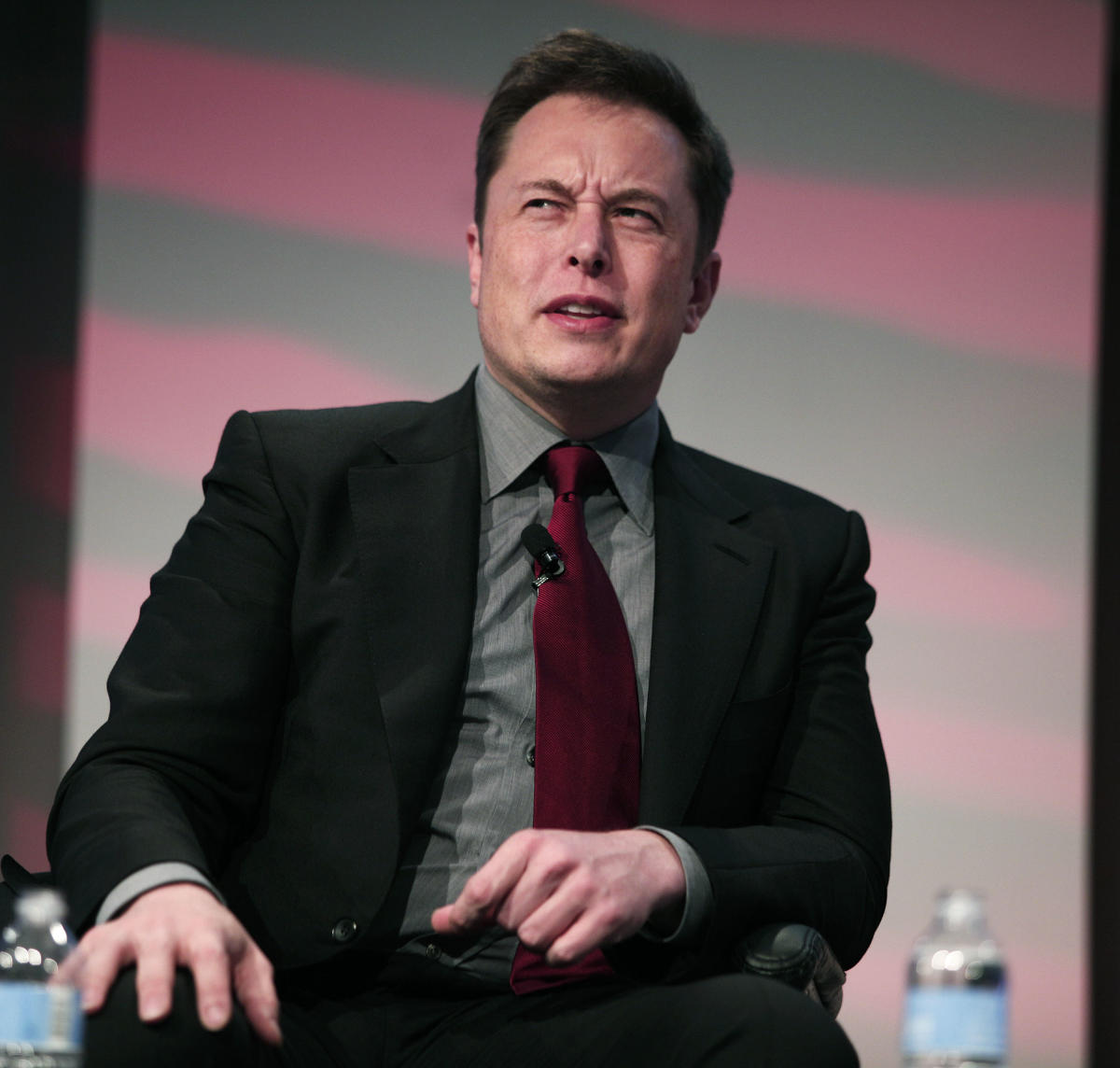A Week Later, the Optics Still Linger
Nearly a week has passed since Elon Musk brought his four-year-old son, X Æ A-12, to the White House and paraded him through the Oval Office on his shoulders. And yet, the imagery lingers—X pew-pewing invisible guns at reporters, sticking fingers in Musk’s ears, and casually flicking a booger beneath the Resolute Desk. The actual topic of the press conference, Musk’s rebuttals to allegations of financial misconduct tied to his cryptocurrency ventures, barely registered. Instead, media outlets and social platforms leaned into memes and viral clips, focusing on Trump’s odd attempts at conversation with a visibly distracted child.
Cynicism Cloaked in Cuteness
Was X’s presence a heartfelt father-son bonding moment, or a deliberate PR maneuver to soften Musk’s post-scandal image? The answer seems depressingly clear. According to Grimes, X’s mother, she wasn’t even informed about the trip in advance. Her social media reaction (“[X] should not be in public like this”) was a quiet but sharp indictment of Musk’s disregard for boundaries.
Unlike historical moments where presidential children provided warmth—JFK Jr. peeking under his father’s desk or Chelsea Clinton with Socks the cat—this felt orchestrated. It wasn’t about showing the human side of a powerful man. It was about controlling the narrative.
Rise of the Tech Daddy Narcissist
What’s especially troubling is how Musk’s decision feeds into a broader and more disturbing trend: the rise of narcissistic tech overlords touting pronatalism. Musk is at the forefront of a growing movement arguing for elite men to father as many children as possible to improve the human gene pool. It’s a bizarre blend of eugenics and ego.
Trump’s obsession with epigenetics, Musk’s compound-building in Texas, and the use of children as living trophies all point to an ideology where children are not nurtured for who they are but groomed as legacy products. X, among Musk’s many children, appears to be the “chosen one” for his proximity to power. Grimes told Vanity Fair in 2022 that Musk sees X as a protégé, and it shows.
Male Legacy vs. Female Labor
This public display also highlights the gender imbalance in how parenting is perceived. When a male billionaire brings his child to work, it’s charming. When a female professional does the same, she’s unprepared, unprofessional, or selfish.
Musk wasn’t grilled about how X was dressed. Nobody asked if he had snacks for him or questioned whether his childcare plans fell through. And no one attributed X’s behavior to Musk’s parenting.
Meanwhile, Grimes found out her son had been to the White House through a stranger’s social media comment. The highest praise she got? That she had raised a polite child. Even after publicly lamenting her lack of access to her children, she was still expected to deliver on the invisible standards of good motherhood.
A System Designed Against Working Mothers
In 2023, the Vote Mama Foundation released a report showing that less than 7% of the 118th Congress were mothers with minor children. Just 37 women in the entire body of lawmakers were actively balancing public service with the emotional labor of parenting. This stark statistic underscores how rare it is for women—especially mothers—to be fully integrated into the highest echelons of power.
This isn’t due to a lack of ambition or capability. It’s a reflection of how hostile our political and professional systems remain toward mothers. The logistical, emotional, and societal challenges of mothering while climbing the career ladder are enormous.
Now, with figures like Vice President JD Vance suggesting that the solution to the childcare crisis is for women to return to traditional roles or lean more heavily on their mothers, the systemic disempowerment becomes clearer.
The Spectacle of Power and Privilege
During the press conference, Trump chastised CNN’s Kaitlan Collins for daring to question him about tariffs. He cut her off with a dismissive, “Excuse me, we haven’t asked you to speak yet,” before immediately welcoming a male journalist’s question. This moment wasn’t just about sexism in the media. It mirrored the broader environment of masculine entitlement and gatekeeping.
X’s presence in that room, nestled on Musk’s shoulders, served as a silent endorsement of this power structure. A small child, likely unaware of the gravity of the event, became a visual symbol of legacy, authority, and male dominance.
Children as Campaign Props
Using children as political props isn’t new. But what differentiates Musk’s move is the private-to-public ownership it asserts over X. There was no family unit, no mother involved, no signs of mutual consent. Just a father with immense power making unilateral decisions about where his child appears, and for what purpose.
This version of daddy cosplay is not about nurturing or connection. It’s about optics. It presents a man who wants to project strength, vulnerability, relatability, and control all at once. And it relies heavily on the cultural willingness to forgive men their parenting faults while demanding impossible standards from women.
The Misuse of Fatherhood
Fatherhood, when exercised responsibly, can be a profound force for good. But in Musk’s case, it appears performative. His selective inclusion of X—while other children have distanced themselves or been sidelined—raises questions.
Why X? Is it truly about a bond, or about crafting an heir? Is it love, or branding? In a time where men in power are increasingly using family as a shield or a sword, the lines are dangerously blurred.
This is particularly resonant given Musk’s complicated family dynamics and controversial opinions on gender, education, and societal roles. He has openly criticized education systems while crafting his own vision for a better, “smarter” society. In that light, bringing X to the Oval Office becomes less about a casual visit and more about indoctrination by exposure.
Grimes, Silenced and sidelined
That Grimes had to find out about her son’s White House visit via social media is not just a communication failure. It’s emblematic of a larger problem: the silencing of mothers.
Despite being a co-parent, Grimes is cast into the shadows. Her concerns about X’s well-being are dismissed or drowned out. The praise she receives comes only when her child performs well in public, never when she advocates for boundaries or questions Musk’s decisions.
This dynamic plays out daily in millions of households, where mothers shoulder the invisible labor, only to be overlooked in moments of public glory. Their contributions are measured not by presence or participation but by how seamlessly they support the father’s spotlight.
The Cultural Double Standard
Imagine for a moment if the roles were reversed. What if Grimes had shown up to the White House with X on her shoulders during a press briefing about her latest music project? The backlash would be swift and brutal. Her fitness as a mother would be questioned. Her professionalism would be under fire. Think pieces would abound about women who can’t separate personal life from professional obligations.
Yet for Musk, the gesture is interpreted as endearing, or at worst, eccentric. That’s the crux of the issue. The same action is judged through completely different lenses depending on gender.
This double standard extends to everything from media coverage to public opinion, reinforcing a system where men are allowed to be complex, contradictory, and even careless—while women are held to rigid, often unattainable ideals.
A Glimpse Into the Future
As the tech elite increasingly mix personal legacy with professional ambition, we are likely to see more instances of children positioned as proof of virility, morality, and vision. It’s not hard to imagine a future where boardrooms resemble dynasties, where the next generation of billionaires is trained not through schooling but by osmosis in the corridors of power.
This future may be inevitable, but it’s not immune to critique. If left unchecked, it creates a world where privilege is inherited not just through wealth but through unearned credibility. Where being seen at your father’s side becomes more valuable than being raised with care.
Final Thoughts
Elon Musk’s daddy cosplay isn’t just a quirky parenting moment. It’s a carefully crafted narrative weapon, wielded in a society that continues to reward men for performative care while punishing women for voicing concern.
It’s a reminder of how far we have to go in recognizing the emotional labor of parenting, respecting co-parenting roles, and dismantling the double standards that shape public life.
Until we ask the same questions of fathers that we do of mothers—about childcare, preparedness, influence, and boundaries—we’ll continue to reward performative fatherhood over responsible parenting. And the ones who lose most will be the children, whose lives are shaped more by optics than love.
- Natural Lip Filler – Elegant Lip Enhancement & Subtle Lip Augmentation - December 19, 2025
- Lip Augmentation in London – Lip Filler London & Natural Lip Enhancement - December 16, 2025
- Bonnie Blue secretly filming huge C4 show which will reveal ‘what her life’s really like’ after 1,000 men sex stunt - June 5, 2025






